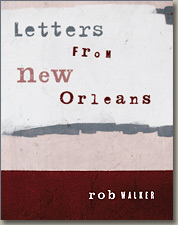I certainly wasn’t thinking about regional identity, or music, or really about anything much at all when I started idly clicking around the Web site that’s been leaking messages from what was a private listserv called Journolist. Maybe you’ve heard about that? It’s a big scandal in media/pundit circles because the media/pundit members (there were 400 or so) were pretty much left-leaning, and since they thought their comments would remain private they expressed a lot of opinions in raw terms they wouldn’t be likely to use in public. One guy got fired from his gig as a Washington Post blogger because of stuff he said there.
All of which is neither here nor there, and I don’t know quite what was looking for (just anything interesting, I suppose) when I clicked on the fifth and final page of a discussion among some Journolist members, from 2009, about whether or not Tea Party people could be characterized as fascists. The jumping off point was coverage of a Tea Party rally in Tampa. Maybe that Tampa detail somehow explains this apparent non sequitur from Michael Tomasky:
Michael Tomasky
Aug 10, 2009, 7:37amI’ll say it for a second time, then I’ll stop: We should split into two. Live and let live. As MacGillis reminded us yesterday, the founders never imagined a country so large anyway.
The only catch I didn’t mention the other day is sports, but I think the two nations would simply have to agree by treaty that all sports, pro and college, will just continue as before.
I assume Tomasky is referring to something he spelled out in a different thread. However he meant this, the “two nations” are interpreted by others in this thread as north and south. Here’s what followed. (Tomasky is a writer. Michael Kazin is a history professor. Richard Yeselson is an organized-labor figure of some sort. Todd Gitlin is a professor and writer. Katha Pollitt is a writer/columnist.)
Michael Kazin
Aug 10, 2009, 9:49ambut all the good music came from the South– surely, you don’t want to leave us with nothing but polka, Gershwin, and A Prairie Home Companion?
——————————————————————–
Richard Yeselson
Aug 10, 2009, 10:04amC’mon Mike–we now have Art in the Age of Mechanical Reproduction. Dixie can keep the fucking museums and tombstones. We’ve got the recordings now….
——————————————————————–
Michael Kazin
Aug 10, 2009, 10:18amBut it took a lot of suffering (and interracial sex) to create all that great music. We Northerners just ripped it off…
——————————————————————–
Richard Yeselson
Aug 10, 2009, 10:41amOk, we ripped off their music. They repaid us with Jesse Helms, Tom Delay, and George W. Bush, among too many others. How about if we keep the interracial sex and just call it square?
——————————————————————–
Todd Gitlin
Aug 10, 2009, 11:20amHey, is the boy from Hibbing chopped liver?
——————————————————————–
Michael Kazin
Aug 10, 2009, 11:33amAs he wrote in his HS yearbook: “I want to be in the band of Little Richard.” Just another Dixie wannabee….and his mentor, Woody G, was from OK…
——————————————————————–
Todd Gitlin
Aug 10, 2009, 12:20pmOK, OK, you win.
[Gitlin adds something here about another Tea Party rally, not relevant to this back and forth.]
——————————————————————–
Katha Pollitt
Aug 10, 2009, 11:04amyes, but now there are lots of black people in the north, so we can still have all that great music etc. the south served its cultural purpose and can now be left to go its own way, like they say they want to do. We can check back in fifty years and see who’s better off.
Now, I don’t know if any of this is really offensive — although “Dixie can keep the fucking museums and tombstones” and “the south served its cultural purpose,” among other excerpts, are, you know, at least bothersome — and I concede that some of it seems sort of merely jokey, I guess.
But I have to admit I’m flat-out startled at how incredibly stupid this exchange is. These are supposedly intellectual folks, the kind of people you’re supposed to aspire to hobnobbing with if you live the Manhattan thing for a while. But this is the kind of conversation I would have rolled my eyes at when I was 18. I guess you could say, “Well, they ‘re just blathering online,” or whatever, but please, the sheer dumbness is astounding. It did take a few seconds, at least, for Katha Pollitt (I writer I admire) and Richard Yeselson to bang out these fool sentiments. Enough seconds, I would say, for the thought, “Oh just shut your yap” to flare across the synapses. But they typed anyway, and they typed these hare-brained words.
Why?

 A couple of years ago I did some research into the song "St. James Infirmary," wrote up what I found, emailed that essay to friends and posted it on my web site (as part of a series of "Letters From New Orleans," as I was living in that city at the time). Based on the feedback, I wrote a second version of the essay, and asked for more feedback. Based on that, I wrote a
A couple of years ago I did some research into the song "St. James Infirmary," wrote up what I found, emailed that essay to friends and posted it on my web site (as part of a series of "Letters From New Orleans," as I was living in that city at the time). Based on the feedback, I wrote a second version of the essay, and asked for more feedback. Based on that, I wrote a 
